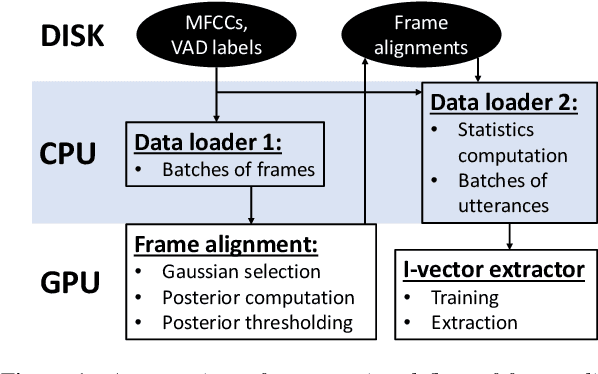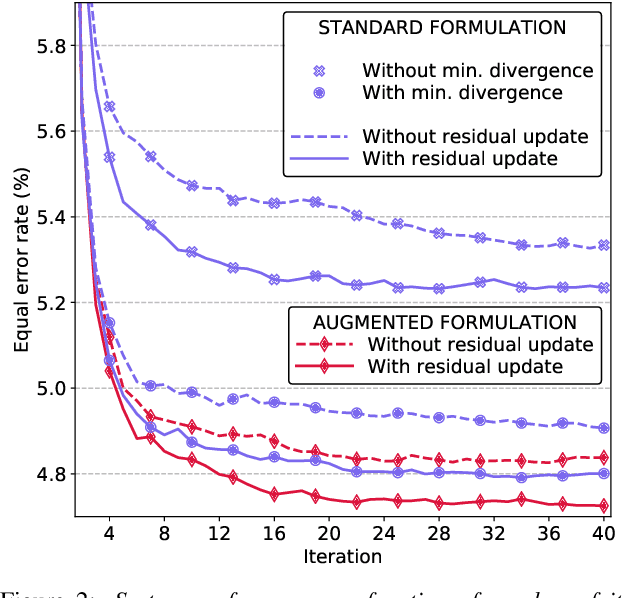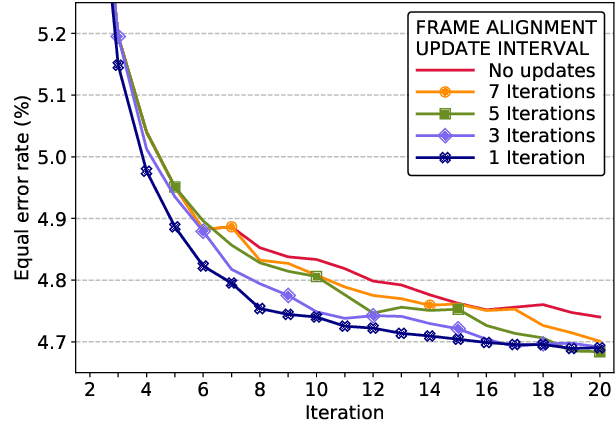Unleashing the Unused Potential of I-Vectors Enabled by GPU Acceleration
Paper and Code
Jun 20, 2019


Speaker embeddings are continuous-value vector representations that allow easy comparison between voices of speakers with simple geometric operations. Among others, i-vector and x-vector have emerged as the mainstream methods for speaker embedding. In this paper, we illustrate the use of modern computation platform to harness the benefit of GPU acceleration for i-vector extraction. In particular, we achieve an acceleration of 3000 times in frame posterior computation compared to real time and 25 times in training the i-vector extractor compared to the CPU baseline from Kaldi toolkit. This significant speed-up allows the exploration of ideas that were hitherto impossible. In particular, we show that it is beneficial to update the universal background model (UBM) and re-compute frame alignments while training the i-vector extractor. Additionally, we are able to study different variations of i-vector extractors more rigorously than before. In this process, we reveal some undocumented details of Kaldi's i-vector extractor and show that it outperforms the standard formulation by a margin of 1 to 2% when tested with VoxCeleb speaker verification protocol. All of our findings are asserted by ensemble averaging the results from multiple runs with random start.
 Add to Chrome
Add to Chrome Add to Firefox
Add to Firefox Add to Edge
Add to Edge